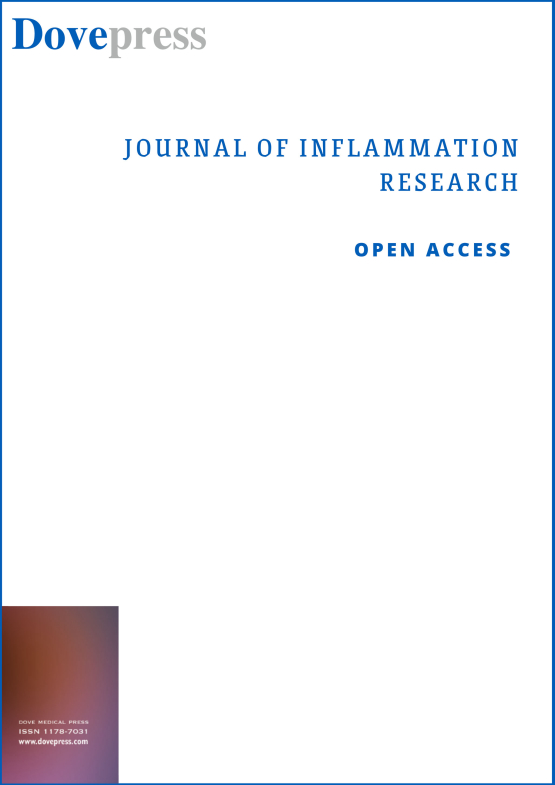Submit a Manuscript to the Journal
Journal of Inflammation Research
For an Article Collection on
Takayasu Arteritis: Insights Into Pathogenesis, Disease Assessment, Treatment, and Outcomes
Manuscript deadline
15 August 2024


Article collection guest advisor(s)
Prof. Durga Prasanna Misra,
Sanjay Gandhi Postgraduate Institute of Medical Sciences, Lucknow, India
[email protected]
Takayasu Arteritis: Insights Into Pathogenesis, Disease Assessment, Treatment, and Outcomes
Takayasu arteritis (TAK) is a rare large vessel vasculitis (LVV). Although more common in Asia, TAK is diagnosed worldwide. The pathology of TAK is a granulomatous inflammation of the aorta and its major branches. Limited studies available from mostly Europe and North America have revealed an increased mortality risk with TAK relative to the general population.
Much remains to be understood about TAK. The assessment of disease activity is challenging. In many instances, TAK sets in insidiously. Patients with TAK might simply be diagnosed incidentally upon the detection of asymmetry of pulses or blood pressure. On the other hand, it can also present with prominent constitutional symptoms without pulse loss at the onset or can present with severe ischemic manifestations such as stroke, myocardial infarction, or vision loss. While the pathology is an inflammatory vasculitis, in many instances, traditional inflammatory markers such as C-reactive protein (CRP) are not elevated. In such instances, 18-F fluorodeoxyglucose PET can identify active TAK even in the absence of CRP elevation. Of late, novel PET ligands such as SST2R and FAPI have been explored as denoting macrophage infiltration or fibroblast activation in the arterial wall.
The treatment of TAK is also challenging. Despite the key pathology of vessel wall inflammation, no immunosuppressive agent has been identified to be effective in a clinical trial of TAK. There is a need to explore newer therapies or therapeutic strategies in TAK, which could include the exploration of adjunctive therapies that affect arterial wall fibrosis (which is a prominent histopathological feature of TAK) in addition to the targeting of inflammation.
This Article Collection invites original and review articles of translational relevance in TAK, including those related to novel blood and imaging biomarkers of disease activity and arterial wall damage, novel therapeutic strategies, and biomarkers of long-term outcomes in TAK.
All manuscripts submitted to this Article Collection will undergo a full peer-review; the Guest Advisor will not be handling the manuscripts. Please review the journal’s aims and scope and author submission instructions prior to submitting a manuscript.
During submission, enter the promo code AHYGD to indicate that your submission should be considered for this Collection. Promo codes are used to identify articles that belong to a specific Collection, so it is important to use the correct code.
The deadline for submitting a manuscript is 15 August 2024. If you have questions, please contact Krista Thom at [email protected].
Guest Advisor:
Prof. Durga Prasanna Misra is a clinician-scientist and epidemiologist with a special interest in Takayasu arteritis (TAK). His work has provided insights into the clinical phenotype of TAK in India, notably the increased mortality risk with TAK relative to the general population and a higher mortality with pediatric-onset TAK than with adult-onset TAK. His team devised novel 18F-FDG PET-CT disease activity scoring systems in TAK, and also discovered novel populations of Th17.1 and PD1+ Th17 lymphocytes which are increased in TAK.
Disclosure Statement: Prof. Misra declares no conflict of interest.
Benefits of publishing open access within Taylor & Francis
Global marketing and publicity, ensuring your research reaches the people you want it to.
Article Collections bring together the latest research on hot topics from influential researchers across the globe.
Rigorous peer review for every open access article.
Rapid online publication allowing you to share your work quickly.
Looking to Publish your Research?
Find out how to publish your research open access with Taylor & Francis Group.
Choose open accessSubmission Instructions
All manuscripts submitted to this Article Collection will undergo desk assessment and peer-review as part of our standard editorial process. Guest Advisors for this collection will not be involved in peer-reviewing manuscripts unless they are an existing member of the Editorial Board. Please review the journal Aims and Scope and author submission instructions prior to submitting a manuscript.